If you want to send someone money in or outside Europe, there are many money services that allow European money senders to send money to nearly anyone with just a few easy steps. First, European money senders choose the recipient in Europe. Then, enter the person's name and email address. If European money senders have done business with the person before, the information will auto-fill. If European money senders need to send a large amount of money, a wire transfer is your best bet. To send money this way, European money senders will need the recipient's name, bank account number, and routing number in Europe. European money senders can also contact the recipient through email or online. While most wire transfer companies do not charge European money senders a fee, European money senders should note that rates may be higher if you are sending money to countries outside of Europe.
In order to send money to a bank account, European money senders will need to create an account with the recipient. Many people choose to send money using their regular bank in Europe, but if European money senders are not sure how to do this, European money senders can also use a third-party provider in Europe. Make sure to set up a link between your accounts, either in the customer service menu or the transfers menu. Regardless of which method European money senders choose in Europe, it is an easy way to send money to someone in need.
Another way to send money without a bank account is through a European money order. While money orders in Europe are a popular way to send money to some one who is not able to access a bank account, they have a few downsides. For example, money orders have high fees in Europe, so using one does not always make sense. While European money senders can always use a credit card for the transaction, money orders are a great option for sending small amounts of money to loved ones in Europe.

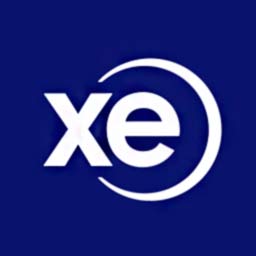 Visit XE Money Transfer
Visit XE Money Transfer
Used By: 280000000
Currencies Available: 76
Transfer Fees: none
Payment Methods: Bank transfer, credit card, debit card
iOS App : yes, Android App : yes
LiveChat:
Min Transfer: US$1.00
Max Transfer: US$500,000.00 (or equivalent)
Year Founded: 1993
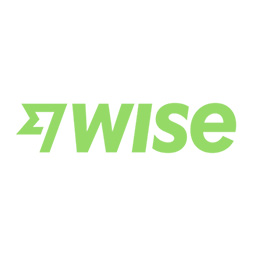 Visit Wise Multi-Currency Account
Visit Wise Multi-Currency Account
Used By: 11000000
Currencies Available: 54
Transfer Fees: 0.5%-1%
Payment Methods: Bank transfer, debit card, credit card, SOFORT transfer
iOS App : yes, Android App : yes
LiveChat:
Min Transfer: 1 USD
Max Transfer: 1000000 USD/transaction/day (personal), 3000000 USD/transaction/day (business)
Year Founded: 2011
 Visit Remitly
Visit Remitly
Used By: 3000000
Currencies Available: 63
Transfer Fees: 0-3.99$
Payment Methods: Bank transfer, credit/debit card
iOS App : yes, Android App : yes
LiveChat:
Min Transfer: US$1.00
Max Transfer: US$20,000.00
Year Founded: 2011
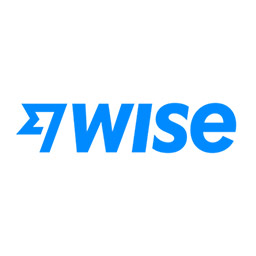 Visit Wise Business
Visit Wise Business
Used By: 11000000
Currencies Available: 55
Transfer Fees: 0.5%-1%
Payment Methods: Bank transfer, debit card, credit card, SOFORT transfer
iOS App : yes, Android App : yes
LiveChat:
Min Transfer: 1 USD
Max Transfer: 1000000 USD/transaction/day (personal), 3000000 USD/transaction/day (business)
Year Founded: 2011
 Visit Wise
Visit Wise
Used By: 11000000
Currencies Available: 54
Transfer Fees: 0.5%-1%
Payment Methods: Bank transfer, debit card, credit card, SOFORT transfer
iOS App : yes, Android App : yes
LiveChat:
Min Transfer: US$1.00
Max Transfer: US$1,000,000 (varies based on currency)
Year Founded: 2011
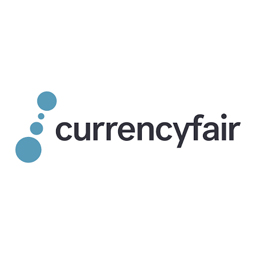 Visit CurrencyFair
Visit CurrencyFair
Used By: 150,000
Currencies Available: 17
Transfer Fees: 0.45%
Payment Methods: Bank transfer, debit card
iOS App : yes, Android App : yes
LiveChat: yes
Min Transfer: £5.00 (or equivalent)
Max Transfer: £10,000,000.00 (or equivalent)
Year Founded: 2009
 Visit InstaReM
Visit InstaReM
Used By: 130000000
Currencies Available: 11
Transfer Fees: 0%-1%
Payment Methods: bank transfer, POLi payment (Australia), debit card (EU residents), ACH Pull (US residents), FPX (Malaysian residents)
iOS App : yes, Android App : yes
LiveChat: yes
Min Transfer: $1 (minimum sending amounts could differ based on certain currency pairs)
Max Transfer: No limit (different countries have regulatory limits on outward and inward flow of remittances originating from or to the country)
Year Founded: 2014
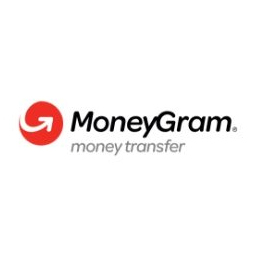 Visit MoneyGram US
Visit MoneyGram US
Used By: 150000000
Currencies Available: 46
Transfer Fees: 0-1.99$
Payment Methods: pay by card or directly from your bank account
iOS App : yes, Android App : yes
LiveChat:
Min Transfer: none
Max Transfer: 3000 USD
Year Founded: 1940
 Visit Xoom
Visit Xoom
Used By: 250000000
Currencies Available: 4
Transfer Fees: 0$-40$
Payment Methods: Bank transfer, debit/credit card, PayPal balance
iOS App : yes, Android App : yes
LiveChat: yes
Min Transfer: US$10.00
Max Transfer: 2999 USD/day, 6000 USD/month, 9999 USD/3 months
Year Founded: 2001
 Visit Skrill
Visit Skrill
Used By: 120,000
Currencies Available: 33
Transfer Fees: none
Payment Methods: Cash, bank transfer, debit card, credit card, e-wallet, cryptocurrency (depending on country)
iOS App : yes, Android App : yes
LiveChat: yes
Min Transfer: US$1.00 (varies based on certain currencies)
Max Transfer: US$2,500.00 / day (weekly and monthly limites also apply)
Year Founded: 2001
 Visit Scotiabank
Visit Scotiabank
Used By: 25,000,000
Currencies Available: 23
Transfer Fees: none
Payment Methods: Bank transfer, debit card, credit card, apple pay, google pay, Scotiabank Saddletone gift cards
iOS App : yes, Android App : yes
LiveChat: yes
Min Transfer: none
Max Transfer: 10000 USD
Year Founded: 1832
 Visit OFX
Visit OFX
Used By: 1000000
Currencies Available: 54
Transfer Fees: 15 AUD below 10k AUD
Payment Methods: ETF, BPAY (Australia), Direct debits
iOS App : yes, Android App : yes
LiveChat: yes
Min Transfer: 1000 USD
Max Transfer: none
Year Founded: 1998
 Visit Credit Suisse
Visit Credit Suisse
Used By: 1000000
Currencies Available: 1
Transfer Fees: none
Payment Methods: eBill, QR-bill, standing orders, payment orders, online & mobile banking, direct debit, multi-payment orders, bank transfer, debit card, credit card
iOS App : yes, Android App : yes
LiveChat: yes
Min Transfer: none
Max Transfer: none
Year Founded: 1856
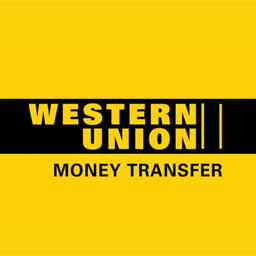 Visit Western Union
Visit Western Union
Used By: 15000000
Currencies Available: 38
Transfer Fees: up to 3%
Payment Methods: Cash, bank transfer, debit card, credit card (varies from country)
iOS App : yes, Android App : yes
LiveChat:
Min Transfer: $1.00
Max Transfer: $10,000.00 (varies)
Year Founded: 1851
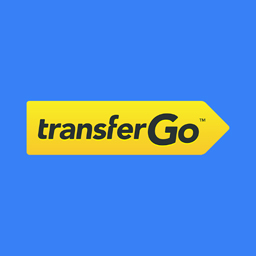 Visit TransferGo
Visit TransferGo
Used By: 2,500,000
Currencies Available: 39
Transfer Fees: 0.5%-1.5%
Payment Methods: Bank transfer, debit card, credit card
iOS App : yes, Android App : yes
LiveChat: yes
Min Transfer: 1.5 GBP
Max Transfer: 1000000 GBP
Year Founded: 2012
 Visit Moneycorp
Visit Moneycorp
Used By: 15000000
Currencies Available: 161
Transfer Fees: none
Payment Methods: debit card via our online platform or a wire transfer, cash
iOS App : yes, Android App : yes
LiveChat:
Min Transfer: 50 USD/GBP/EUR
Max Transfer: none
Year Founded: 1962
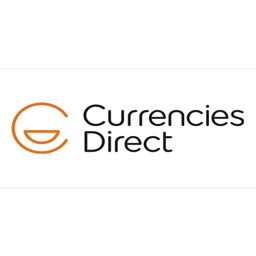 Visit Currencies Direct
Visit Currencies Direct
Used By: 325,000
Currencies Available: 22
Transfer Fees: none
Payment Methods: Bank transfer, debit card
iOS App : yes, Android App : yes
LiveChat: yes
Min Transfer: none
Max Transfer: 25000 GBP
Year Founded: 1995
 Visit Neteller
Visit Neteller
Used By: 500000
Currencies Available: 28
Transfer Fees: none
Payment Methods: online banking account, debit, and credit card
iOS App : yes, Android App : yes
LiveChat: yes
Min Transfer: none
Max Transfer: up to 50000 USD/transaction
Year Founded: 1996

These types of transfers take less time and are usually more convenient in Europe. However, they may have a few disadvantages. To get the most out of these methods, make sure European money senders choose the provider that offers the fastest transfer in Europe. European money senders should also consider whether the provider European money senders choose has fast customer service. If European money senders want to send money quickly, European money senders can also try using digital wallets and mobile phones in Europe. Another option is to write a cheque and send it in the mail. Unlike sending money online, writing a check and mailing it takes time. European money senders can send a check in the mail, but that is not as safe as sending a money transfer.
Before transferring money to someone else, European money senders have to register with the service provider in Europe. European money senders will be required to enter personal details and sometimes proof of your source of funds. European money senders can choose an online service or a local agent in Europe. Once European money senders have registered, European money senders will need to provide details of the person receiving the money. The recipient's name and bank account information must match the recipient's ID and bank account in Europe.
There are many ways to transfer money in Europe, but the fastest way is by using a cash app. Most of these apps are free to use, but a few require European money senders to set up an account. Also, the time frame for money transfer varies by app in Europe. Make sure European money senders know who the recipient is before European money senders send large sums of money. Most of these methods take a few minutes or a day to complete. In addition, European money senders do not have to physically travel to the recipient's home or workplace to send money in Europe. The constant internet connection has made it easier to send and receive money.
When it comes to money, most people have some experience sending and receiving funds to and from people without bank accounts in Europe. However, if European money senders do not have a bank account yourself, European money senders should know that there are many ways to send money to someone without a bank account in Europe. Whether European money senders need to send cash to someone European money senders know in a foreign country or simply want to share your finances with a friend or family member, European money senders have many options available in Europe.
First, there are mobile wallets, which are smartphone apps that store credit and debit cards in Europe. Apple Pay, Google Wallet, and Samsung Pay all allow European money senders to send money to people without a bank account through these wallets in Europe. These wallets can also store other forms of payment, which makes sending money quick and convenient. There are also online banking options, including bank accounts. Using mobile wallets will ensure the safest and fastest transfers in Europe.
One of the safest methods to send money to a stranger is to use your own bank account in Europe. Banks in Europe are large financial organizations and are regulated by law. When making an online payment, European money senders should choose a safe way to send money to avoid being a victim of fraud. ACH transactions are the safest way to send money because the money goes through a clearinghouse. Western Union is another option for sending money to a stranger. Although it has no guarantee against fraud in Europe, it encourages best practices and will report any fraudulent activity. However, European money senders should always remember that money transfers do have costs. European money senders can either spend a few dollars on a gift or send a few hundred dollars for a holiday in Europe. If sending money to and from Europe, consider in many developing countries, people still prefer cash, and they don't have access to a bank.
XE Money Transfer is a popular app which is a great way to send money to friends and family in Europe. XE Money Transfer is trusted by millions of people around the world. The platform allows European money senders to transfer money in seconds and directly deposit the money into a recipient's bank account in Europe. If European money senders are concerned about privacy, European money senders can always choose another app. It is up to you, which one European money senders prefer.
Digital money apps are the easiest way to send money in Europe. They allow European money senders to send money to anyone with an account in Europe, and most offer extra protections such as email and text verification. Some even feature a profile picture to verify the identity of the recipient. Another important feature is low fees for standard checking account transfers in Europe. European money senders will only need to pay higher fees if European money senders want to send money from your credit card or use an express method.
If European money senders are wondering how to send money to someone who does not have a bank account, there are a few ways to do so. The conventional way is through money orders in Europe. Money orders are pre-paid paper instruments that allow European money senders to send money to the person European money senders would like to send it to. Money orders in Europe can be mailed to your recipient, and offer the same security as checks but do not require a checking account.
Most banks in Europe now offer online banking solutions, allowing account holders to conduct transactions from the comfort of their own homes in Europe. Once European money senders have signed up for online banking or downloaded the mobile app, European money senders can send money to your recipient. For example, if European money senders are sending money to a Wells Fargo account, European money senders will need to provide the account number, social security number, tax ID number, and email address of the recipient. European money senders will also need the person's name, address and phone number in Europe.
There are a number of options available to send money through your wallet in Europe. Mobile wallets are becoming more popular, especially with the convenience of a tap of the finger. Many people have smartphones and use online money transfer services to send money in Europe. The app is extremely convenient and allows users to send up to EUR10,000 to a recipient in a single transaction. Once the recipient has verified their account, they should receive the money the next business day. And, European money senders can send money in multiple currencies with XE Money Transfer. But be sure to check the currency exchange rate before sending. European money senders may have to pay a small fee for transferring large amounts.
Depending on the destination, European money senders can send money to another person using the same mobile wallet in Europe. Mobile wallets in Europe can include PayPal, Apple Pay, Google Pay, Samsung Pay, and Venmo. Some mobile wallets charge a fee to send money from a bank account, while others do not. So, if European money senders are worried about fees, use a mobile wallet to transfer money in Europe. However, make sure to check if European money senders are able to transfer money to a bank account before sending your money.
If European money senders are wondering how to send money transfers to a mobile wallet, European money senders have come to the right place. Unlike sending money through banks in Europe, this method bypasses the middlemen and delivers your money right to your recipient's phone in Europe. After European money senders have sent money via mobile wallet, the recipient will receive a notification from your provider and instructions on how to use their wallet in Europe. Depending on the provider, European money senders may need to fill out a transaction form or provide your phone number to verify that you're the recipient. If European money senders are sending money from your mobile phone.
The most convenient way to transfer money to a mobile wallet is to link your bank account in Europe. This is a simple process that takes 30 minutes and maybe free apart from currency exchange fees. After European money senders have linked your bank account, European money senders can then transfer money to any person with a online money transfer account. Once European money senders have connected your bank account in Europe, European money senders will be able to make payments to anyone in Europe and even internationally.
When it comes to making international transfers in Europe, there are several different ways to do so. Some methods use a bank account, others use a money transfer company. Banks in Europe are still the most traditional way to transfer money internationally, but there are plenty of other options available. For instance, some people feel that using a bank is the safest option, but online money transfer services have more competitive fees and even zero fees. Compare different companies before deciding on a service to use. Banks in Europe typically place limits on outgoing money transfers, so if European money senders are sending more than that, European money senders should consider using a money transfer service in Europe. Furthermore, your recipient's bank will likely charge a currency exchange fee on top of the sending fee. If European money senders are worried about losing money when transferring money internationally, European money senders can try Wise.
There are many ways to transfer money internationally in Europe, but the cheapest way generally comes with the lowest fees. Banks in Europe often charge various fees for receiving and sending money, and these charges are passed on to customers. When sending and receiving money, check your bank's exchange rates in Europe. The easiest way to find out the cost of transferring money internationally is to use your internet banking. There are many different services that offer this service, and most of them offer competitive rates. Before making a choice, keep in mind that currency rates vary significantly depending on the destination country. To avoid paying excessive fees, choose a company that has transparent fees.
Some providers in Europe have limits on how much money they will let European money senders transfer and how often European money senders can transfer it. This limit can be increased if European money senders regularly make large international transfers. Other services in Europe may require European money senders to make multiple smaller transfers to make up for the higher limits. When sending money internationally, many people turn to their banks. Banks in Europe are perceived as safer and convenient, and this can cause people to ignore other methods.
The best way to find the cheapest way to transfer money internationally is to check the fees charged by online providers in Europe. Some of these services in Europe offer better exchange rates than banks, and it is always wise to compare multiple providers before making a decision. It is always better to pay less for the best service, but the fees will be lower. Luckily, there are many free money transfer services in Europe on the internet that will help European money senders transfer money internationally.
Foreign currency transfers are the easiest way to send money internationally in Europe. European money senders can choose between remittance services, forex exchange firms, and credit cards. When sending money internationally in Europe, use a bank that offers an international wire transfer. These services are extremely fast. European money senders can even use a credit card if European money senders have a credit card that supports international wire transfers. The fees charged are minimal - around 2 percent of the amount transferred. Plus, the money goes to your recipient immediately, whereas it might take days for the money to reach the recipient's bank in Europe.
If European money senders are sending more than a few hundred dollars, consider a P2P money transfer in Europe. This method will match people in one country selling currency in another country. A P2P transfer in Europe will be faster than a wire transfer because fewer banks are involved. It can also save European money senders money by eliminating correspondent bank fees.
The answer depends on the country. European banks charge a fixed amount for international wire transfers, but European money senders should be aware that European money senders can incur additional charges if European money senders input incorrect details. When transferring funds internationally, there are a number of fees that consumers must pay. Fees can vary depending on the method European money senders choose, and your timeframe and expense may also affect which option is the best.
When choosing a European bank for an international wire transfer, it is important to compare the fees for the same type of money. Incoming wire transfers in Europe may incur fees from the receiving bank, and outgoing wire transfers may also involve a fee from the sending bank. Regardless of the bank European money senders choose, European money senders will need to learn about the full suite of services and products that each provider offers.
When European money senders have a bank account with more than one European bank, the fastest way to transfer money from one European bank to another is by bank transfer. Bank transfers are usually quick and easy, and the process is completely automated. For most people, a one-time or recurring transfer is fast, and European money senders can often get the money in your recipient's hands within 24 hours in Europe. Other options include wire transfers, which can take up to 48 hours to complete. However, some banks have specific restrictions, including the number of transfers per day or month. To find out the fastest way to transfer money, ask the provider European money senders are using to provide European money senders with the details of their services.
Using an app or site that allows European money senders to send and receive money from different European banks is the fastest way to transfer money. Whether European money senders are splitting a dinner bill with friends or paying for a bachelorette party at a fancy hotel, European money senders can use the service to send and receive money. Simply link your European bank accounts and enter the amount European money senders want to transfer, select the recipient, and click 'send.' The recipient will instantly receive the money.
Before making a transfer in Europe, make sure European money senders have the account number of the other bank and the routing number of the person receiving it. Banks will usually provide this information on their websites, mobile apps, or paper checks. Most major banks have an online list of their routing numbers in Europe. If European money senders do not have access to these information, try contacting your bank to find out which account European money senders want to link. A quick and convenient way to transfer money between bank accounts is by using P2P payment tools in Europe.
There are a few different ways to transfer a large amount of money to someone. Some European banks require a routing number or account number before allowing European money senders to send funds. While this can be time-consuming, it can also be free for up to four transfers a month. If European money senders have trouble finding this information, European money senders can also use an email address to transfer the money in Europe. In some cases, European money senders may even be able to send the money to someone without a bank account or email address.
A wire transfer in Europe is another way to transfer money internationally. This method allows European money senders to transfer money electronically from one bank account to another. The other party must have an account with a bank that matches yours. European money senders can find out their bank account information online or at your local branch in Europe. European money senders should also be aware that wire transfer companies may charge a fee for this service. European money senders should also be aware that the rate for sending money overseas can be significantly higher than in Europe.
Wire transfers in Europe are a popular and safe way to send large amounts of money. Before European money senders can complete a wire transfer, however, European money senders will need to have the recipient's name, bank account number, and routing number in Europe. European money senders can contact the recipient for these details via phone or online. European banks can charge a fee for sending money by wire transfer, depending on their policies and location. XE Money Transfer, and PayPal and Google Wallet are secure methods to send money in Europe. While they may be more convenient than sending money directly through the mail, they do come with their own set of sacrifices. If European money senders need to send a large amount of money, these are the best options. Besides, these services are usually free or very inexpensive. European money senders will just have to decide which is best for you.
One way to avoid international wire transfer fees in Europe is to choose a low-fee provider. To avoid international wire transfer fees, use a multi-currency account. The exchange rate varies from one country to another in Europe. European money senders can compare exchange rates by searching online. European money senders can also request fee waivers if European money senders send money sparingly. When sending money internationally, European money senders may want to choose a bank that charges lower fees. While wire transfers in Europe are a convenient way to send money, the costs associated with them can quickly add up. The average cost of a wire transfer in Europe is about $25. It's important to compare your costs and fees with the costs of other methods and choose the one that will suit European money senders best. The costs are often worth the convenience of avoiding international wire transfer fees, so European money senders should consider switching banks if European money senders can.
First, European money senders will need to know who you're sending the money order to. If European money senders are transferring money from an account to another in Europe, European money senders will need the payee's name, account number, and address. European money senders can also include a memo line with a note about the purchase in Europe. For instance, European money senders could write that European money senders are making a purchase for a specific item or European money senders are paying off a debt.
The name of the recipient must be written in the pay to field. This name should be legible, as the money order cannot be changed after it is printed. If European money senders are sending a money order to a business, make sure that European money senders have their name in the 'from' field, as well. In addition, European money senders should make sure the recipient's name and address are written clearly on the money order.
European money senders will also need the payee's name, address, and signature. European money senders can leave this blank if European money senders are uncomfortable sharing your address. European money senders can also add their email address or cell phone number if European money senders are unsure about the name of the recipient. This will help European money senders contact them if there is a problem. This step will help European money senders ensure that the money order is delivered on time.
The answer varies greatly depending on the location European money senders use to send your money order in Europe. The post office is probably the most convenient place to buy money orders. Although most financial institutions don't list the fee structure, European money senders can generally expect to pay between EUR1.25 and EUR4.50 for sending money orders in Europe. If European money senders are unsure of how much to spend, military money orders are typically free. If European money senders want to send a large sum of money to a military person, consider using a military money order in Europe. While these are more expensive, they do offer a bit more security.
The fee for money orders varies, depending on the location in Europe. Some are valid only in Europe while others are valid worldwide. To send a money order, European money senders will need to provide the address of the recipient, as well as the amount of money European money senders want to send. A money order in Europe has a maximum amount, so make sure to factor this into your budget before European money senders order. Also, keep in mind that European money senders need to pay for the money order and mail it in a stamped envelope to ensure that it arrives safely in Europe. When European money senders have completed the money order, European money senders will be charged a fee. If European money senders want to send more than one money order, European money senders should calculate this into the total amount European money senders need.
First, European money senders will need to verify the amount and value of the money order in Europe. European money senders may also want to make sure that the name on the money order matches the name on your identification. If all of these checks are in order, then European money senders are in business in Europe. Once European money senders have checked the legitimacy of a money order, European money senders can take it to a place that accepts it. Some places that accept money orders include a European bank, a credit union, a grocery store, a retail store, and a post office. Even some convenience stores may accept them.
European money senders should always be aware of your surroundings when cashing a money order in Europe. Make sure to bring photo identification. In case European money senders are cashing a money order in a store, make sure to write clearly in black gel ink. If European money senders are mailing a money order, make sure to include the recipient's name and address on the envelope. European money senders can also use certified mail if European money senders are mailing money orders. A money order in Europe is a secure payment method, and unlike personal checks, it cannot bounce if the recipient does not have enough money in his/her bank account. People often use money orders when making international purchases or large purchases in Europe. The secure nature of this method of payment can reduce the risk of theft.
Credit cards are a convenient way to avoid carrying large amounts of cash in Europe. Not only are they convenient, but they also track transactions and may even offer reward points for purchases in Europe. If European money senders need money fast, a credit card transfer may be the best option. There are several options for fast transfers, including wire transfers, cash, money orders and credit card convenience checks in Europe.
While credit card transfers are a popular way to send money abroad, it is not always convenient. Credit card providers in Europe can treat the transfer as a cash advance, which can result in higher interest rates and fees. In such situations, it is wise to use a money transfer provider that specializes in sending money abroad from Europe. These companies in Europe also offer convenient and affordable methods of sending money overseas. So, before European money senders start transferring money to your bank account, consider these three options and make the most informed decision.
It is possible, When European money senders transfer money to your bank account, European money senders can withdraw it from an ATM or use it to buy things in Europe. However, European money senders might need more than one ATM withdrawal a day. Your credit card company may have a limit in Europe. If European money senders need more than one withdrawal a day, European money senders should contact the company. If the transfer takes longer than European money senders would like, consider transferring the money through another method, such as a check.
Another way to transfer money from credit card to bank account is by sending a check in Europe. However, this method will impact your credit score and may result in further debt. Additionally, it may be more convenient to make a transfer in person rather than via a bank, which may incur additional fees in Europe. If European money senders decide to make the transfer through a European bank, be sure to check your account details. Before transferring money from credit card to European bank account, European money senders should compare the benefits and drawbacks of each option. Some cards offer 0% interest rates, while others require European money senders to transfer the money within 60 days in Europe.
European money senders can pay someone with a credit card by going to their European bank and giving them their card number and name. One option for paying someone with a credit card is to write a check and mail it to the appropriate mailing address of the cardholder in Europe. However, make sure to write down the account number and credit card number on the memo section of the check, as this will be the only way the European card issuer will know to which account the payment was made.
Alternatively, European money senders can use a payment tool such as a phone application to make the payment. Depending on the person's location in Europe, European money senders can use the payment service to pay the person through your phone in Europe. In such a way, the person who borrowed the money will not have to worry about how to pay European money senders back. Although paying someone with a credit card may incur fees, European money senders will feel better knowing that European money senders can pay them back.
Yes, it is possible. Some financial institutions, including European Bank, allow European money senders to make transfers between your card and your Europeanbank account online. European money senders will likely be charged higher fees to do this, though. If European money senders need the money immediately, European money senders may want to consider alternatives, such as cash, money orders, or wire transfers. Credit card companies also offer convenient convenience checks in Europe.
A convenient and secure method to send money to other people is by using online banking in Europe. Online banking in Europe allows European money senders to perform many different transactions from the comfort of your home. To send money to someone else, European money senders need to sign up for the bank's online banking service or app in Europe. To do so, European money senders will need to provide their account number, social security number, tax ID number, and email address. European money senders can also send money directly to a person's account through a P2P app.
When sending money to a friend or family member, a good service in Europe can offer European money senders competitive rates. Not only do money transfer services offer faster and cheaper transfer rates than banks, but they are also as safe and secure. If you're wondering which service to choose, read on for some tips and information. First, compare the fees and rates. The costs of different services in Europe can vary widely. Compare rates and fees to see which one is the best value for your money. Consider the timeframe and security features. While these are personal preferences, it is best to go with a service that provides fast and secure transfers in Europe.
Choosing the best method for international money transfers in Europe is important because not all methods are the same. Traditional banks, for example, may charge up to EUR50 in administrative fees and mark up exchange rates in Europe by as much as 4%. European money senders may also be charged another EUR10 to EUR20 from an intermediary bank or the final recipient's bank. These seemingly small costs add up. In contrast, online money transfer services generally charge lower fees and offer lower spreads in Europe.
When transferring money internationally, European banks have strict regulations and security procedures. This is one of the most secure methods, but often requires a higher fee. Banks also tend to offer low exchange rates compared to other options, so European bank transfers are often more expensive. Online money transfer services in Europe, on the other hand, update mid-market rates and provide excellent customer service. If European money senders are sending money to someone abroad, consider using a bank that offers multiple payment options, and check their customer service policies.
To determine which money transfer service is the cheapest for sending money to someone in or outside Europe, consider the exchange rate. If the currency pair European money senders need to send money from is more expensive than your current currency, choose a service that uses zero markup exchange rate in Europe. The mid-market rate is the actual exchange rate. Most transfer services in Europe add a margin on top of this rate. Others do not add any margin, making their money through transfer fees and other charges. However, European money senders can often find cheaper services if European money senders send larger amounts in Europe.
While banks in Europe are not always the cheapest option, online services can be significantly cheaper. Before using any money transfer service in Europe, be sure to compare the different providers to ensure that European money senders are not overcharged. Different providers have different exchange rates and fees, so make sure European money senders compare them and compare prices and fees so European money senders can choose the most affordable one. Once European money senders have decided which one is the cheapest, European money senders can start looking for ways to save money in Europe.
If European money senders have a prepaid card, European money senders can use it to transfer money from one account to another. European money senders will need to have your recipient's bank account's routing number. Most European banks list this information on their websites, including European Bank. After European money senders have obtained your routing number, European money senders can link the prepaid card to your bank account in Europe. Follow the instructions provided by your card provider to transfer funds to a recipient.
Prepaid debit cards in Europe are similar to traditional credit cards in many ways. Prepaid debit cards in Europe are electronic payment cards loaded with deposit assets. They replace traditional bank checking. They may offer special services for bill payment and online shopping. European money senders can also make payments to other prepaid debit cards in Europe. However, if European money senders do not have a bank account, European money senders should consider a prepaid card. It is much easier to transfer money using a prepaid debit card than a traditional bank account in Europe.
If European money senders are wondering how to transfer money from your bank account to your prepaid card, European money senders have come to the right place. Depending on the European bank European money senders use, the process may vary. Log into your online European bank account and select the amount that European money senders would like to transfer. Once European money senders have completed this step, European money senders will be able to use your prepaid card at any merchant that accepts a credit card.
First, European money senders will need to link your prepaid card to your European bank account. Once European money senders have done that, European money senders can transfer money to and from your prepaid card. The transfer will generally take one business day, but it will not immediately appear on your prepaid card. European money senders may also be asked to verify your European bank account in advance. Once European money senders have verified this information, the money should be in your European bank account within a few days.
Next, European money senders need to present a bank transfer form in Europe. Make sure to bring identification with European money senders and have the teller help European money senders fill out the form in Europe. European money senders can also submit your request via telephone or online. European money senders will need to know your checking account number and routing number. European money senders will also need to know your prepaid card's customer service number. Finally, be sure to include the prepaid debit card's customer service number in your message, so that the teller knows exactly where to send your money in Europe.
We list reviews for the best How To Send Someone Money Europe related money services below.
If you would like to see some of the best How To Send Someone Money Europe related services compared against their best How To Send Someone Money Europe alternatives available right now. Learn more about How To Send Someone Money Europe alternatives by clicking on the links below.